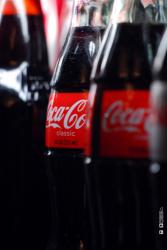Press Releases

“Sugary drinks became even more affordable in developing countries, where 2016’s income could buy 89 percent more sugar-sweetened beverages than in 1990. That’s essentially half-price.”
A new American Cancer Society study concludes that sugar-sweetened beverages have become more affordable in nearly every corner of the globe, and are likely to become even more affordable and more widely consumed. The study appears in the journal Preventing Chronic Disease, and concludes that without policy action to raise prices, global efforts to address the obesity epidemic will be hampered.
For the study researchers analyzed both real prices of sugar-sweetened beverages (SSBs) as well as relative income prices, based on annual per capita income in 40 high-income and 42 low-income and middle-income countries around the world between from 1990 to 2016. They used Coca-Cola as a proxy for all sugar-sweetened beverages because it is the most globally recognizable sugar-sweetened beverage brand and widely available worldwide, comprising more than one-fourth (25.8%) of the global market in 2014, more than double its closest competitor.
They found sugar-sweetened beverages became more affordable in 79 of 82 countries between 1990 and 2016, most often due to a combination of increases in income and decreases in price. Real prices dropped in 56 of the 82 countries.
“Overall in the countries we studied, a person in 2016 could buy 71 percent more sugar-sweetened beverages with the same share of their income than they could in 1990,” said Jeffrey Drope, Ph.D., study co-author. “Sugary drinks became even more affordable in developing countries, where 2016’s income could buy 89 percent more sugar-sweetened beverages than in 1990. That’s essentially half-price.”
“Although the increase in affordability is partly due to economic progress that resulted from rapid global economic development, it is also attributable to a lack of action taken by policy makers to affect the price of sugar-sweetened beverages,” write the authors. “We argue and the scientific literature strongly suggests that this environment of increasingly affordable sugar-sweetened beverages will inevitably drive increased consumption of such products and will certainly hamper global efforts to address the overweight and obesity epidemic.”
The authors also reviewed price trends for bottled water comparing them to SSBs to provide a control, and found that bottled water is typically more expensive and less affordable than sugar-sweetened beverages.
Because rising incomes are a positive sign of growth, the authors say “the logical intervention is for governments to affect prices through excise taxation, as they have done with other unhealthful products such as cigarettes.”
Article: Blecher E, Liber AC, Drope JM, Nguyen B, Stoklosa M. Global Trends in the Affordability of Sugar-Sweetened Beverages, 1990–2016. Prev Chronic Dis 2017; 14:160406. DOI: 10.5888/pcd14.160406.